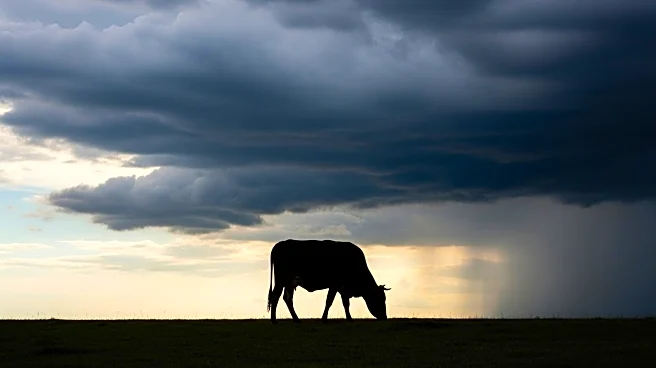What is the story about?
What's Happening?
In 2025, Brazil, the world's largest beef exporter, encountered a significant tariff crisis when the Trump administration imposed an additional 50% levy on its beef exports to the U.S., resulting in a total effective tariff of 76.4%. This move forced Brazil to rapidly redirect its beef exports to Mexico, which became its second-largest market. By July 2025, Brazil's beef exports to Mexico surged 420% year-to-date, reaching 67,659 metric tons, a substantial increase from the previous year. Brazil is seeking approval for additional meatpacking plants to export to Mexico, aiming to increase the number of authorized facilities to 49. The country is also exploring trade opportunities in China and Southeast Asia, leveraging geopolitical tensions to capture market share.
Why It's Important?
The tariff crisis highlights the importance of supply chain resilience and diversification strategies for global meat exporters. Brazil's ability to adapt by expanding certification capacity, securing new trade agreements, and leveraging Mexico's infrastructure demonstrates strategic foresight in mitigating trade disruptions. The crisis underscores the need for exporters to balance short-term market access with long-term geopolitical stability. For investors, the situation emphasizes the significance of supply chain agility in navigating a fragmented global trade landscape.
What's Next?
Brazil is considering legal challenges to the U.S. tariffs, while continuing to diversify its export markets. The country is negotiating a free trade agreement with Mexico and exploring renewed terms for tariff suspensions on essential goods. These efforts reflect a calculated shift toward reducing dependency on any single market, a strategy that global exporters must adopt in an era of escalating trade wars.














